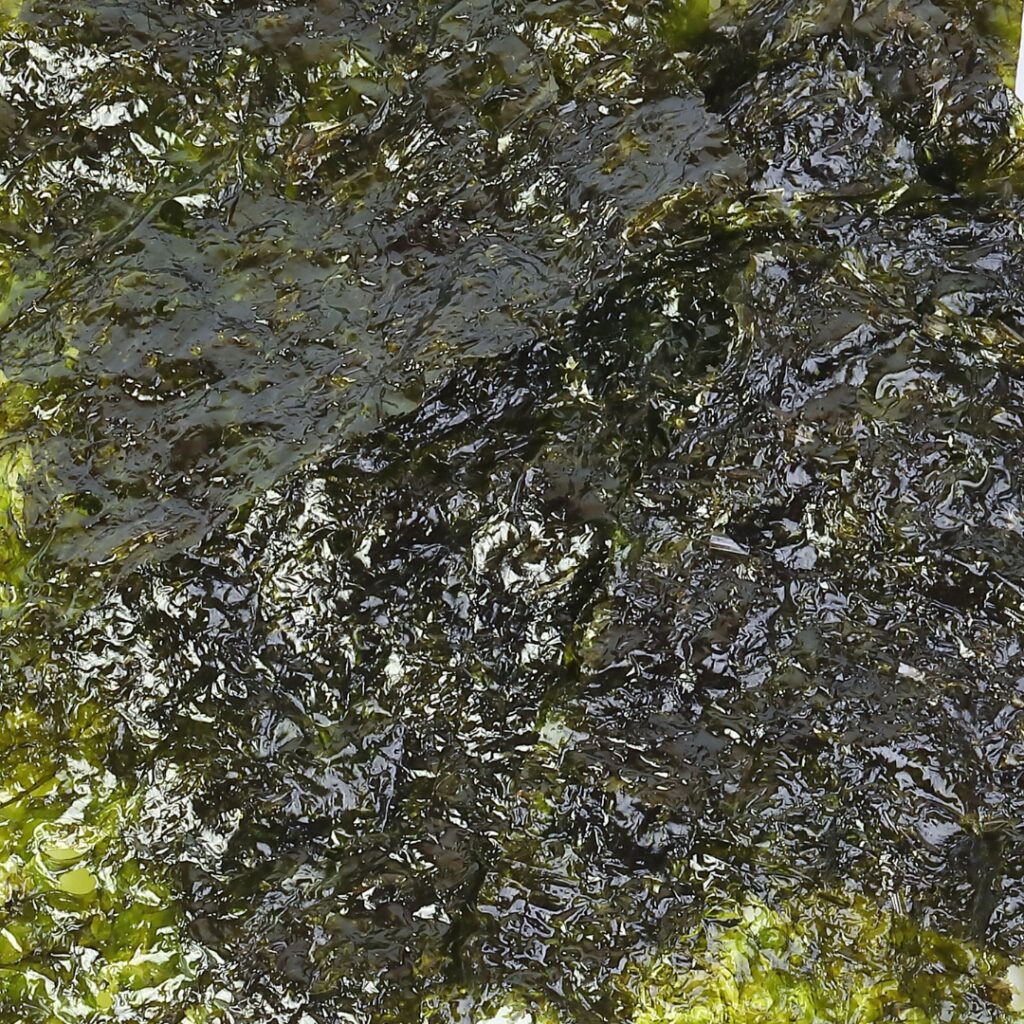
It is no secret that dietary supplements are immensely popular in the equine industry. Let’s do better by our horses and critically investigate dietary supplements. This week’s Friday with Finn blog post is going to be all about seaweed. Seaweed, also commonly referred to as kelp, is a dietary supplement that I occasionally see supplemented in equine rations. So, let’s dive into some of the science behind why it is supplemented as well as some of the concerns with the dietary addition of kelp.
What is Kelp?
According to the Oxford dictionary, kelp is a large brown seaweed. Worldwide it is estimated that there are over 1700 different seaweed varieties. The main categories are green, brown and red. The brown seaweed is what we most frequently see used as equine dietary supplements.
Kelp supplementation was first suggested as a feed additive in the 1930s by veterinarian Juliette de Bairacli. It was initially recommended for use due its nutritional profile of a variety of vitamins, minerals, and amino acids. Normally, kelp supplements for horses are marketed as a source of trace minerals and vitamins. However, kelp is not a balanced source of minerals. Kelp has low concentrations of most trace minerals, with the exception of iodine. Therefore, when it is supplemented at the recommended feeding rates (normally 10-30g/day) your horse’s trace mineral requirements are not being adequately met.
In addition to kelp not being a balanced vitamin and mineral source, research has shown that iodine levels can vary significantly in seaweed, even if it is the same variety used. In a 2004 study that evaluated the iodine content of 12 different seaweed species, the authors found that the iodine content ranged from 16 mg/kg to over 8000 mg/kg. Even within the same variety of seaweed the variation was significant, ranging from 514 – 6571 mg/kg.
Amount Examples
Iodine is an essential mineral for horses. Most of the horse’s iodine is found in the thyroid gland as it is necessary for the synthesis of T3 (triiodothyronine) and T4 (thyroxine) which are hormones that regulate metabolism. Both deficiencies and toxicities of iodine can result in hypothyroidism. The NRC (Nutrient Requirements of Horses, 2007) recommends between 3.5-4.4 mg of iodine per day for a 500 kg horse – the exact amount depends on the animal’s workload.
Through browsing kelp supplements, many do not even provide a guaranteed analysis giving you the information on the exact iodine content of the product (red flag!!!). One equine product stated that the iodine content was 650 mg/kg – to be fed at 30 g per day for a 500 kg horse. This equates to 19.5 mg of iodine daily for the horse, which is significantly higher than their requirement.
Toxicity Concerns
Iodine toxicity can be a concern when supplementing the ration with kelp. The NRC states that iodine toxicity has been reported at intakes as low as 40 mg/day in mares. Goiter (enlarged thyroid gland) in both mares and foals has been attributed to large amounts of kelp in the diet. Therefore, although these supplements can be beneficial for adding iodine to a deficient diet, caution should be exercised. With balancing rations, most horses will receive their iodine requirement from a ration balancer, commercial pellet, or iodized salt.
Potential Benefits
Many advertisements for kelp supplements sound very attractive as the company will often list the broad array of vitamins, minerals, and amino acids that the natural product contains. This will often go hand in hand with claims such as:
– Natural treatment of an under-active thyroid in horses
– Rich source of vitamins and minerals
– Brings balance to your horse’s nutrition
– Contains a complete and balanced range of essential minerals
– Supports the hindgut environment
There is research on kelp as an animal feed additive in both production animals as well as horses. Potential benefits have been shown as prebiotic impacts, antioxidant properties, enhanced immune function, and improved muscle development. For horses, kelp supplementation can be recommended to support gastric health.
A 2016 study investigated the impact of feeding a high calcium algae on gastric ulceration in horses. The 10 horses were scoped and diagnosed with varying degrees of gastric ulceration; their diets remained unchanged with the exception of 40 g of algae being added. The authors reported that the addition of the high calcium algae in the diet reduced ulceration in the horses after 30 days of feeding.
Therefore, there are potential benefits to horses, however, more research is required. If you are suspicious of a lack of iodine in your horse’s diet consult with an equine nutritionist to ensure you aren’t risking toxicity with the addition of one of these supplements. Additionally, do not feed any kelp supplement that is not providing you with the iodine content of that product. Let’s stop guessing with equine nutrition. Our horses deserve more than random supplements with weak evidence and poor labelling being added to their diets.
By: Madeline Boast, MSc. Equine Nutrition
References:
Teas, J., Pino, S., Critchley, A., & Braverman, L. E. (2004). Variability of iodine content in common commercially available edible seaweeds. Thyroid, 14(10), 836-841.
Evans, F. D., & Critchley, A. T. (2014). Seaweeds for animal production use. Journal of applied phycology, 26, 891-899.
Shu, M. H., Appleton, D., Zandi, K., & AbuBakar, S. (2013). Anti-inflammatory, gastroprotective and anti-ulcerogenic effects of red algae Gracilaria changii (Gracilariales, Rhodophyta) extract. BMC complementary and alternative medicine, 13, 1-13.
Moir, T., O’Brien, J., Hill, S. R., & Waldron, L. A. (2016). The influence of feeding a high calcium, algae supplement on gastric ulceration in adult horses. Journal of Applied Animal Nutrition, 4, e8.
Drew, B., Barber, W. P., & Williams, D. G. (1975). The effect of excess dietary iodine on pregnant mares and foals. The Veterinary Record, 97(05), 93-95.
Copyright © 2024 Balanced Bay Nutrition | Site Crafted by Bay Mare Design